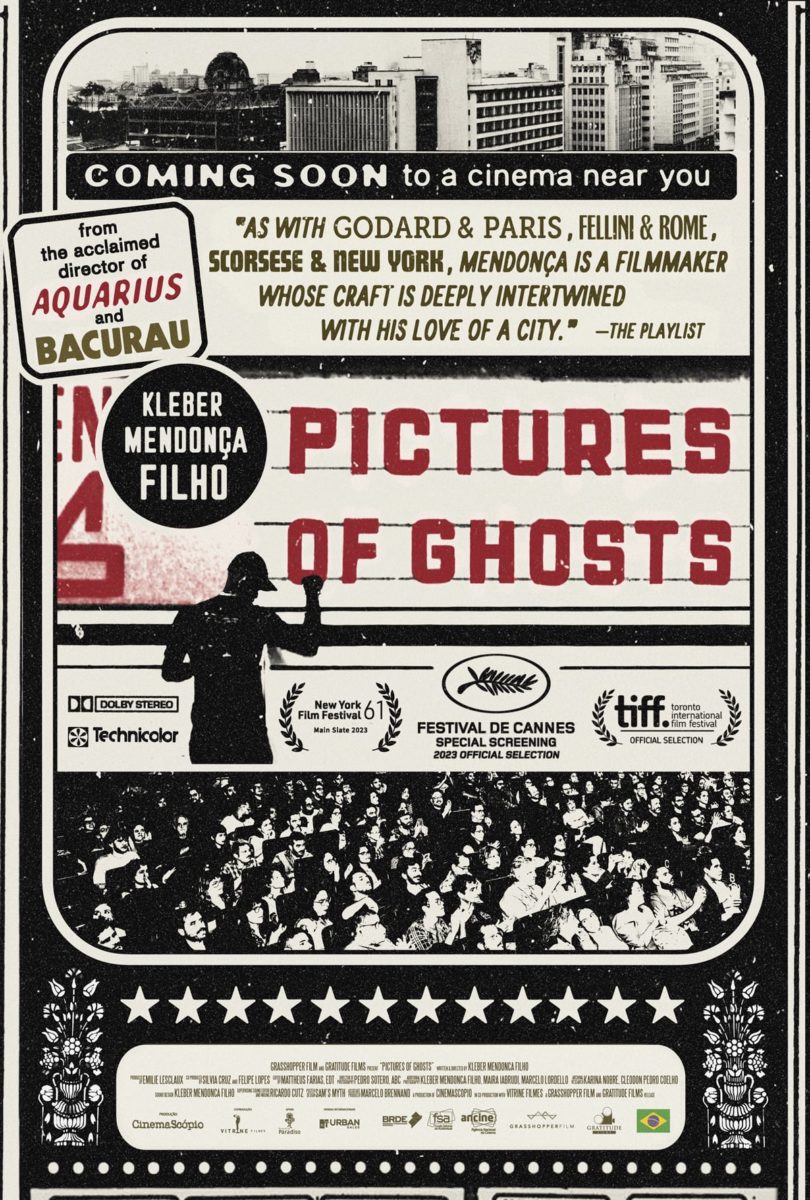Kleber Mendonça Filho followed his epic Bacurau with a lower-key reflection on his personal cinematic life. A hit at last year’s Cannes Film Festival, Pictures of Ghosts distills a lifetime of the Brazilian’s cinephilia through archival documentary, mystery, film clips, and personal memories to bring back to life downtown Recife’s classic movie palaces from the 20th century, many of which are mostly gone. Ahead of Grasshopper Film’s January 26 release, there’s a new trailer.
As David Katz said in his review, “If the death of cinema is imminent, at least Kleber Mendonça Filho can play it out with some vintage Tropicália. It’s becoming a nice leitmotif of the Brazilian director’s career, whose ultraviolent Bacurau curtain-raised with Gal Costa’s ‘Não Identificado,’ and latest effort Pictures of Ghosts, which premiered as a Special Screening at Cannes, eases in with Tom Zé’s deceptively jaunty ‘Happy End.’ This is a first-person, arguably selfish movie––in that associated genre, the docu-essay––where Mendonça Filho seems to be waving a teary-eyed goodbye to valuable associations and possessions, perhaps only those of individual sentimental resonance. Yet it’s ‘selfish’ in a productive manner, almost as a function of self-care, like a sunny afternoon lounging on the settee revisiting one’s favorite LPs.”
Find the preview below:
Brazil’s official selection for the 2024 Academy Awards, PICTURES OF GHOSTS, from acclaimed director Kleber Mendonca Filho (BACURAU, AQUARIUS and NEIGHBORING SOUNDS), is a multidimensional journey through time, sound, architecture and filmmaking, set in the urban landscape of Recife, Brazilian coastal capital of Pernambuco: a historical and human territory, examined through the great movie theatres that served as spaces of conviviality during the 20th century. Having hosted dreams and progress, these places have also embodied a major transformation on social practices. Combining archive documentary, mystery, film clips and personal memories, PICTURES OF GHOSTS is a map of a city through the lens of cinema.

